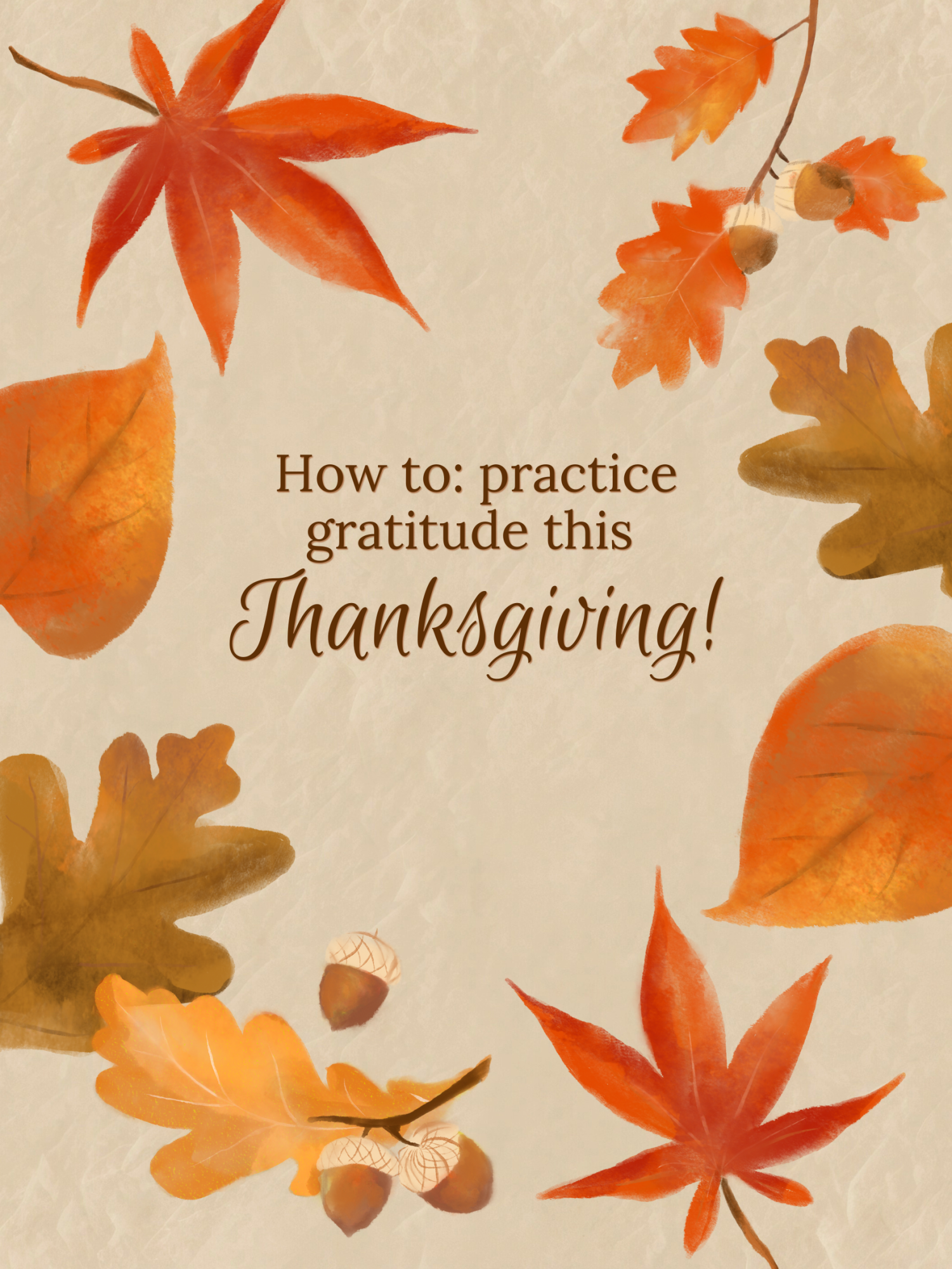With the holiday season approaching, we all could use a gentle reminder to slow down and remember what we have to be thankful for! Whether we do that by simply listing a few people who have made our days a little better or giving a thoughtful gift to a loved one, there’s plenty of ways to practice gratitude and endless benefits that come with it.
Keeping a Gratitude Journal
Grab an old notebook or even just take out a couple pieces of blank paper and try listing what you’ve been grateful for lately. This can be as simple as a new friend you made last week or a nice walk you went on yesterday. Doing this for just a couple of minutes before bed is a great way to end your day with positive thoughts in mind.
In a recent experiment, subjects who kept a gratitude journal for either 10 weeks or daily for two weeks had both psychological and physical benefits. Participants slept better, felt more grateful, optimistic and had generally better moods. Another similar experiment conducted on 186 patients with asymptomatic heart failure where they kept a gratitude journal for 8 weeks found that the patients had increased heartrate variability, which reduces cardiac risk.
You can also get creative and instead of listing what you’ve been grateful for in a journal, you can write it down on small slips of paper and fill up a jar of gratitude. You can even ask family members or friends if they want to contribute!
Give a gift to a loved one
Showing appreciation through gifts is one of the best ways to practice gratitude as it boosts not only your own mood but the mood of someone you love.
Gift-giving can also be broadened, instead of a classic store-bought present, consider something handmade to save some money and be even more meaningful. This could just be a thoughtful card or maybe you have a specialty for making something craftier like jewelry or paper flowers.
An article by Glenn F, Kaplan J, Damasio H, and Damasio A, titled Neural correlates of gratitude, states, “It has been established that gratitude leads to benefits for both mental health and interpersonal relationships.”
Researchers proved this by asking participants to put themselves in the context of the Holocaust and asked them to rate how grateful they would’ve felt for particular gifts such as shelter, food, clothes etc. This stimulated their anterior cingulate cortex, a part of the brain that is associated with pain perception and emotional processing and made them feel empathy on a deeper level for holocaust survivors.
Volunteer locally
Sometimes the best thing we can do to feel gratitude is give back to our community. Especially with two of the most celebrated holidays coming up shortly, now is when volunteer organizations need the most volunteers.
Many opportunities are available like food drives, community services, soup kitchens, blood drives and many organizations taking a variety of donations. There’s also plenty of organizations catered to putting your own specific interests and talents to good use.
Volunteering can not only be life-changing for those on the receiver side, but it’s proven that it offers remarkable physical and mental health benefits for those doing the volunteer work.
An article by Angela Thoreson titled Helping people: changing lives: 3 health benefits of volunteering, states, “By spending time in service to others, volunteers report feeling a sense of meaning and appreciation, both given and received, which can have a stress-reducing effect.”
Volunteering can also help build new relationships with those who have shared interests in your community, as well as teaching valuable lessons that can apply to other areas of your life.
Gratitude is one of the most important emotions to feel and spread, so as we hear the word float around in the next couple of weeks, remember there’s so many ways to practice it and with just a couple of minutes each day you can make a huge difference in your own life and the lives of those who surround you!

